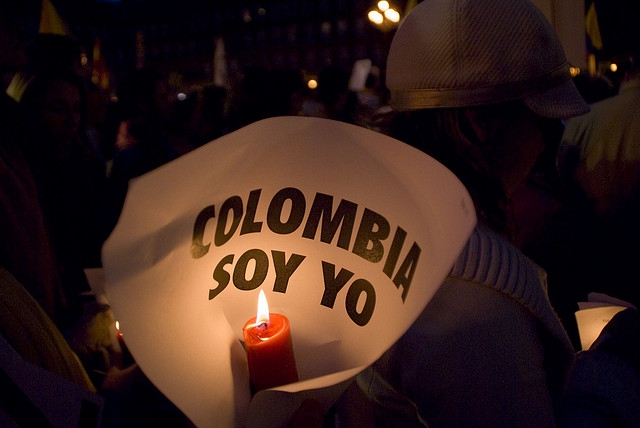Colombia's government and FARC guerrillas signed an agreement Tuesday on paying reparations and providing justice for victims of their half-century conflict, a key breakthrough after three years of peace talks.
"The national government and the FARC have agreed to create an integral system of justice and reparations... fulfilling our commitment to place victims at the center of the peace accord," they said in a joint statement read out in Havana, where they have been holding talks since November 2012.
The deal, the product of a year and a half of negotiations, sets out the procedures of a special justice system that will be set up to try those accused of the atrocities that human rights groups say both sides have committed in the war.
The special courts will issue lighter sentences such as public service for those who admit to their crimes.
The deal also offers an amnesty for all but the most serious crimes, such as summary executions, rapes and kidnappings.
The Colombian conflict has killed more than 220,000 people and uprooted six million, drawing in multiple rebel groups, right-wing paramilitaries and drug traffickers over the years.
"Today we reclaim our dignity and restate our demand that the peace accords uphold the rights of all victims," said Jineth Bedoya, a journalist who was kidnapped and raped by paramilitary fighters in 2000, and who was part of a group of victims who traveled to Havana for the signing ceremony.
"Our support for the peace process does not mean we renounce justice, reparations and above all the truth," she said.
President Juan Manuel Santos, who launched the peace process and has made it the cornerstone of his presidency, hailed the agreement. "We have never been so close to a final accord," he wrote on Twitter.
Santos was present when the core of the deal, the special justice system, was agreed in Havana on September 23. That day, he and FARC leader Timoleon "Timochenko" Jimenez shook hands for the first time and vowed to reach a final peace deal within six months.
But disagreements over the scope of the deal emerged in the following days. Tuesday's signing ceremony definitively lays them to rest -- at least in theory.
The two sides have now signed deals on four of six agenda items for the peace talks: justice for victims, land reform, political participation for ex-rebels, and fighting the drug trafficking that has fueled the conflict in the world's largest cocaine-producing country.
The only unsettled questions now are disarmament and the mechanism by which the final accord will be ratified.
The Revolutionary Armed Forces of Colombia (FARC), a Marxist guerrilla group which rose up in 1964, is the largest of Colombia's two remaining rebel groups, with an estimated 8,000 fighters.
The other group, the National Liberation Army (ELN), has an estimated 2,500 fighters. It has held preliminary talks with the government but has not yet entered a formal peace process.






